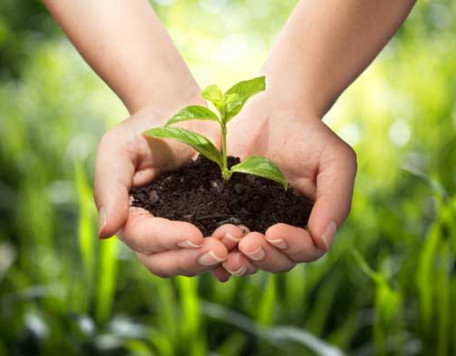© Pint of Science, 2025. All rights reserved.
From the lab to coutryside, plants fuel planet, people, and now science. By Going Green, we'll host talks from leading researchers working with plants to understand how plants work, how they interact with the environment, and how we can use nature's very own tools to help us build a sustainable future.
Poking plants
Dr Finn Box
(Research Fellow)
Plants are natural feats of engineering and botany a playground of physical phenomena. In this talk, we'll take a walk on the wild side and encounter ripe fruit, a gigantic leaf and an explosive cucumber. I'll describe the bioballistics of seed dispersal, the structural economy of a vasculature network and the cloaking effect of a peel. In doing so, I hope to demonstrate that poking a plant is an effective way of testing its mechanical properties.

Farming Proteins: How Plants Are Changing Biotech for a Sustainable Future
Dr Mohammed El Hajj
(CEO Bright Biotech)
Many of the proteins used in medicine, food, and research are made using expensive systems, like large steel tanks filled with bacteria or animal cells. What if plants could do the job instead? At Bright Biotech, we use molecular farming to grow valuable proteins inside leaves. By modifying chloroplasts, the tiny green factories inside plant cells, we can produce proteins in large quantities using fewer resources, reducing environmental impact. In this talk, we’ll explore how plant power can make biotech more affordable and greener, helping us create a more sustainable future for our planet.

Peatland Restoration
Dr Jonathan Ritson
(Research Fellow)
The peatlands of Devon were described in the 18th century as “wastes, which are at present a disgrace and reproach to the inhabitants of this county”. This view led to two centuries of largely failed attempts at improving peatlands for agriculture but now we’re trying to turn them back into a wet, boggy place of carbon storage and weird carnivorous plants. In this talk, Jonny Ritson will explain how peatlands have changed over recent history and how future management, and Sphagnum moss in particular, might be used to increase carbon storage and decrease methane emissions.

Map data © OpenStreetMap contributors.
Other Sureshot Taproom events
2025-05-20
Power and Preservation
Sureshot Taproom
4 Sheffield Street, Manchester, M1 2ND, United Kingdom
2025-05-21
From Soil to Sky: Using Earth's Ancient Past for a Modern Future
Sureshot Taproom
4 Sheffield Street, Manchester, M1 2ND, United Kingdom



